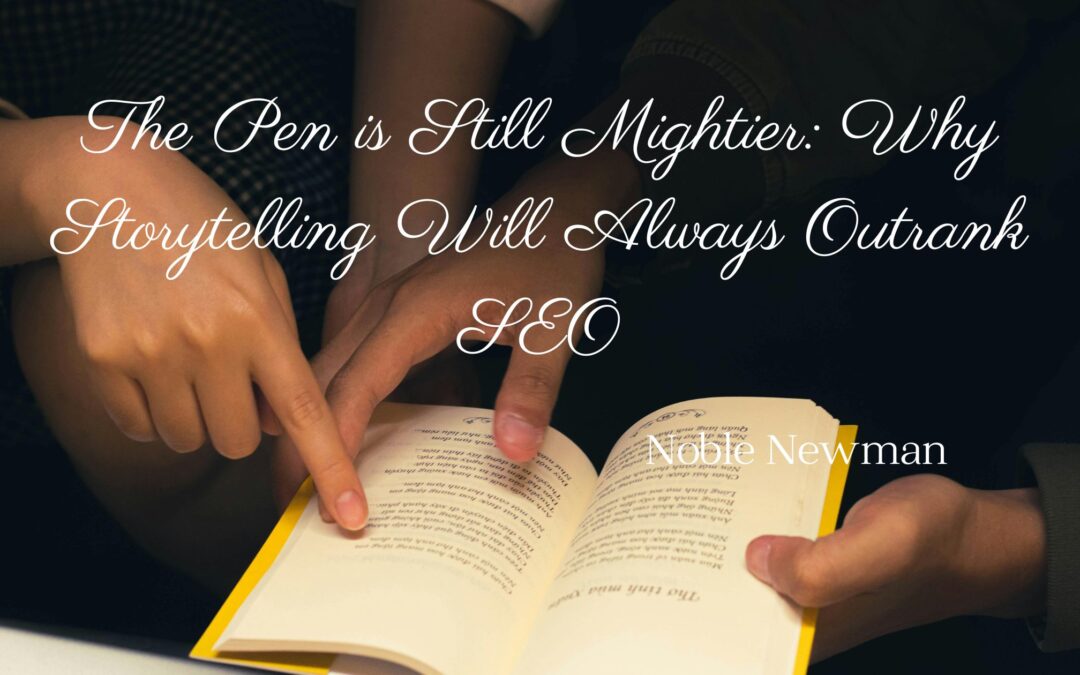In an age where algorithms decide what gets seen and AI writes half the internet, it’s tempting to think that the art of storytelling is on the decline. But here’s the truth: great writing still wins. Always has. Always will.
While headlines and hashtags might get the first click, it’s the story that keeps someone reading, subscribing, and sharing. It’s what turns casual browsers into loyal readers—and loyal readers into lifelong fans.
The Power of Human Storytelling
At its core, literature is about connection. Whether it’s a tweet or a 1,000-page novel, the goal is the same: to make someone feel something.
The classics endure for a reason. Shakespeare didn’t have a blog. Orwell didn’t optimize for keywords. But their work lives on because it taps into something timeless—emotion, truth, conflict, vulnerability.
That’s a lesson modern writers (and marketers) can’t afford to forget.
The SEO Trap
Let’s be real—writing for the internet today often feels like playing a game of “beat the algorithm.” You’re told to:
- Use your keywords just enough (but not too much)
- Make your headings H1s and your links internal
- Prioritize readability scores over real insight
It’s useful advice—but not art. And it’s not what people remember.
You can rank on page one of Google and still have readers bounce in 10 seconds if the writing doesn’t hook them.
Literary Roots in Modern Content
The best modern content takes its cues from literature:
- Character-driven brand stories
- Narrative podcast formats
- Personal essays that go viral for being raw and honest
Even in business writing, people crave depth. A product explainer that reads like a short story? That’s the stuff people forward. A founder’s journey that feels like a memoir? That’s what builds trust.
Writing is Reputation
For thought leaders, CEOs, influencers, and creatives alike—your writing is your reputation. It’s how people understand who you are, what you value, and why you’re worth listening to.
It’s not just what you say—it’s how you say it.
And while ChatGPT, Grammarly, and content farms can draft serviceable copy, only a human can write something real. Something messy, beautiful, and memorable.
The Bottom Line
In a world that rewards speed, volume, and clicks, taking the time to write something meaningful is an act of rebellion—and an investment in long-term credibility.
So write well. Write with heart. Because when the noise dies down, it’s the storytellers we’ll still be reading.

